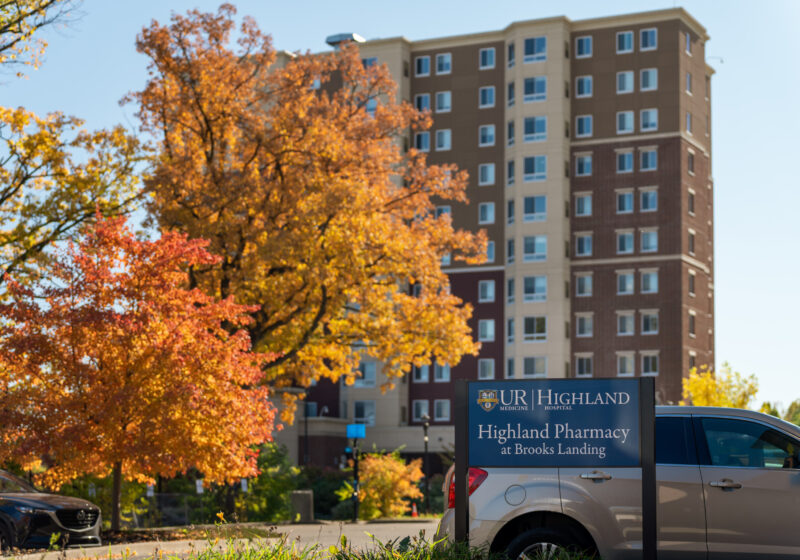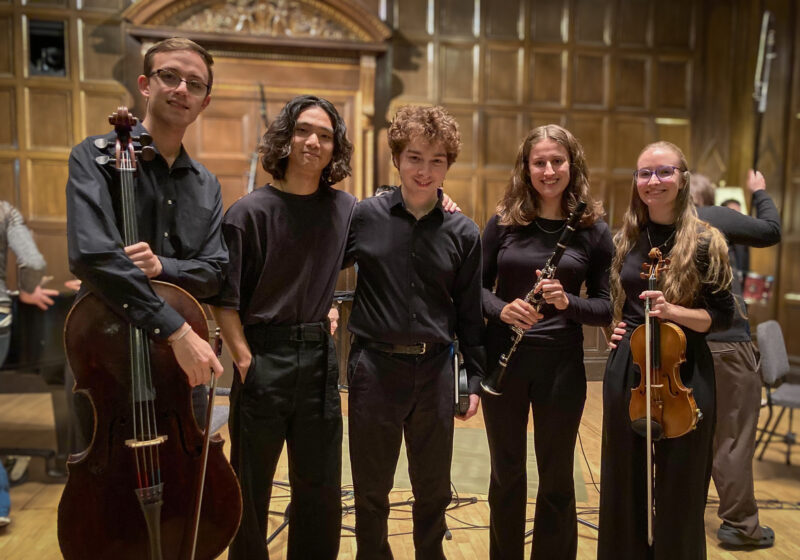Let’s play a game.
Six degrees of separation. Except instead of finding those five special people to connect you to Zac Efron, try to find out just how many degrees your lunch is separated from the origin of the ingredients. Or maybe even just how many miles separate you from where your food comes from. Shortest distance wins.
On Tuesday afternoon, when a small, unassuming woman held up a parsnip plant, almost as large as she was tall and grown on Peacework Farm 35 miles east of Rochester, everyone in the Gowen Room audience saw just how easy it could be to win the game.
‘I couldn’t resist this,” Elizabeth Henderson said, holding up the parsnip above her head for the audience to see. ‘This is the biggest parsnip we ever grew. I mean, look at that!”
For Henderson an author, PhD, farmer, advocate and many other things (the list of adjectives is almost unnerving to the humbled English major sitting in the third row) what she does is simple: she helps people win the degrees of separation game. And, according to her talk on Tuesday, this is a game you should desperately want to win.
In 1988, Henderson co-founded the Genesee Valley Organic operating at Peacework Farm, one of the area’s first Community Supported Agricultures (CSA), the by-product of a grassroots local food movement that enables individuals to buy a share of a local farm in exchange for weekly or monthly supplies of vegetables, fruit, dairy, meat whatever the farm can support.
Twenty-one years ago, the GVO CSA had just 31 share holders; today, they have over 300.
‘As a farmer who likes to write and is able to do public speaking, I’ve brought the message that we need to change the way we live,” Henderson explained on Tuesday at the event sponsored by a number of campus organizations, including Dining and Auxiliary Services, Women’s Caucus and Grassroots. ‘My partners and I follow simpler living than most urbanites have discovered we grow most of what we eat; we can and we freeze. These are old-fashioned skills but they’re making a comeback now.”
CSA was originally introduced in the United States in 1984 by a Swiss man who wanted to bring a European concept of cooperative relationships between producers and consumers to America. According to the National Sustainable Agriculture Information Service, the concept was reactionary: ‘In an era of price supports for commodity crops and chronic agricultural surpluses, organizers saw a food system that overemphasized competitive advantage and externalized many costs while failing to offer the small farmer a fair return.”
Henderson’s path to the farm might appear backward. With a PhD in Russian Literature, the New York City native earned a teaching spot at Boston University. But the birth of her son soon after she got the position prompted her to reevaluate what kind of food she was putting in her (and her son’s) body and as a result, her career.
Enter Unadilla Farm. Henderson purchased this piece of land in western Massachusetts, and turned it into a homestead, where she grew her own food free of pesticides and received help from friends and neighbors, including a man who was both shocked and amused to see a bunch of women, let alone women with PhDs, farming out in the country.
But the group made something out of it most notably, a concept of what exactly it means to be organic. In her speech on Tuesday, Henderson quoted Wendell Berry:
‘”An organic farm is not one that uses certain methods of substitutes and avoids others. It is a farm who’s structure is formed in imitation of a structure of a natural system. It has the integrity, the independence and the benign dependence of an organism.'”
But while that suffices in describing the farm technically, Henderson, even after she left the Unadilla farm to promote her ideal in upstate New York, has staked her life around a more holistic approach.
After a couple years of work, her farm took off and, before long, they were able to sell to area vendors, marketing not just their food, but the concept of local, small-scale production. In 1984, a former student and mentee of Henderson’s wrote a letter to the local newsletter that Henderson edited, challenging the group’s approach to building economic alternatives. In order for organic agriculture to be meaningful, she said, the group would have to sell on a large scale.
But for Henderson, there was no need to have to compromise. The response she wrote to her former student was candid and calm but, like the speech given to the Gowen Room audience on Tuesday afternoon, passionate.
‘You tell me I have to grow more to [have more people eat my organic vegetables] more acres, more production, higher productivity, higher efficiency,” Henderson wrote.
‘Gee, that sounds kind of familiar. Wasn’t it some people like that that brought American agriculture into the mess it’s in today? …
‘The more I think about it, the more I know I prefer swimming against the stream,” she continued. ‘Who knows if enough people join me, we might have enough strength to reach its source and then even be able to change its direction.”
Hilfinger is a member of the class of 2010.





